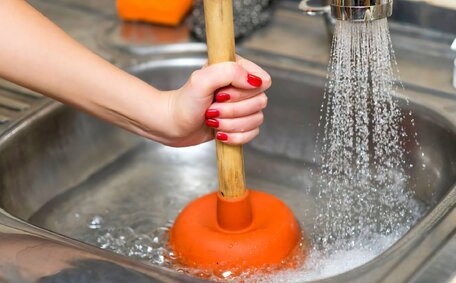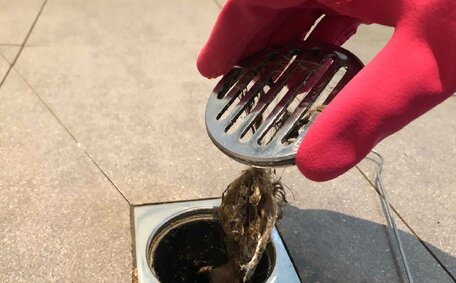Understanding Gas Valves in Heating Systems
Gas valve issues can undermine both the safety and efficiency of your heating system. Found in both gas boilers and furnaces, gas valves regulate the flow to ensure your gas boiler operates efficiently and safely. A malfunctioning furnace gas valve may lead to serious safety hazards, including gas leaks, explosions, or carbon monoxide poisoning, which could trigger a system lockout.
Essentially, gas furnace valves, controlled by the circuit board, open and close to allow for proper flow of gas into the combustion chamber at the correct times. Built-in automatic shut-offs in many valves will engage to halt gas flow, locking out the supply to safeguard against dangers infiltrating your living area. Furthermore, if the pilot light acts erratically, this can signify issues with the valve’s responsiveness – a common sign of valve failure.
Knowledge of gas valve trouble, often linked to the circuit board, enables early detection of issues. Catching minor gas valve faults quickly can help how know your furnace is performing and avoid complete breakdowns or hazardous malfunctions. Enhanced awareness of symptoms can alert you to furnace gas faults, enabling prompt intervention through regular servicing and maintenance.
Common Signs Your Gas Valve is Failing
There are multiple indications that a gas valve might be nearing failure. Being attentive to signs bad gas valve allows for prompt action to avoid complications from a bad furnace gas valve, complete breakdowns, or hazardous gas leaks.
Insufficient Heat or Erratic Operation from Gas Flow Disruption
If your boiler keeps shutting off unexpectedly or your system fails to deliver warm air, a malfunctioning heat exchanger or an issue preventing flow gas into the combustion chamber could be the culprit. A faulty furnace gas valve might not allow the gas valve only to open fully or maintain proper flow to sustain warm air production. These intermittent shutdowns can affect the system’s performance, signifying issues in the self-regulating components.
Odd Noises
Strange sounds like hissing or whistling coming from gas appliances can also signal problems. This may result from issues like stuck components or loosening parts inside old valves. Address odd noises quickly to prevent cracks or leaks.
The Smell of Gas
Foul odours, similar to rotten eggs, can alert homeowners to potential gas valve malfunctions. Calling in an experienced HVAC company to inspect systems is advised as issues can precede fires or explosions. If seals inside the valve wear out, dangerous leaks may occur.
Lack of Heat or Frequent Shutdowns
A failing gas valve, causing intermittent heat loss or unexpected shutdowns, can compromise your heater’s capacity to warm your home. When valves cannot regulate proper fuel flow, the system struggles to heat your home adequately. Faulty gas valves in furnaces are most likely responsible for over half of heating issues.
Before assuming the worst, rule out other potential causes like faulty thermostats, control board mishaps, or pilot light inefficiencies. If those components check out, focus diagnostic efforts on the gas valve your furnace utilises.
Check the valve functions properly, ensuring it seals tightly when closed. Make sure to listen closely for any hissing from loose fittings, as this could be a crucial indicator of a gas issue.
Also verify the correct gas pressure both upstream and downstream of the valve, checking the pressure switch for accuracy.
If simple visual checks reveal no obvious faults, call HVAC professionals to investigate components like the inducer motor and the printed circuit board for further potential gas valve problems. However, Immediate action to repair faulty valves is often the most cost and time effective solution for older units approaching their lifespan limit.
Strange Noises from the Furnace
Unfamiliar noises coming from your heating system when in operation may indicate issues with a failing gas valve. You may hear hissing, whistling, or humming sounds that differ from the normal operational noise of the blower fan or burner ignition.
For instance, stuck components can cause furnace noises as gas escapes through small cracks or loose fittings, which can be signs of bad gas issues leading to furnace inefficiencies. Metal components rubbing together improperly may also cause high-pitched humming or whistling noises.
One must be diligent to call professional help promptly whenever strange noises persist, as this may signal dangerous gas leaks. Only a qualified technician has the proper diagnostic equipment to accurately pinpoint the source of furnace noises and remedy gas valve failures safely.
Left unchecked, a malfunctioning valve itself can lead to carbon monoxide accumulation, fires, or potential explosions.
Never attempt repairs without assistance, as this risks exacerbating issues and voiding manufacturer warranties.
Smell of Gas
An ominous rotten egg smell or sulphurous odour signals the possibility of a dangerous gas leak. This disconcerting smell typically results from mercaptans – sulphurous chemicals added to natural gas to aid leak detection through scent. If seals inside the valve wear out, leaks can occur, emitting this foul odour.
Detecting a rotten egg smell near gas appliances necessitates immediate safety measures, including shutting off the gas supply. If feasible, shut off the main exterior gas line valve, then immediately contact emergency services and your gas supplier.
Evacuate the area to avoid health risks. Never ignore gas smells or attempt repairs yourself.
Only a professional HVAC technician has adequate expertise to accurately diagnose and remedy when an issue can manifest from failing valves. Technicians can identify the source and cause of odours using electronic gas detectors and leak detection fluid. Prompt repairs ensuring your gas valve working correctly also avoid carbon monoxide buildup, explosions, or fires over time as leaks worsen.
While gas smells could occasionally indicate small leaks elsewhere, never take risks. Contact reputable home services as soon possible to ensure immediate attention whenever you detect even the slightest hint of gas odour. Your safety relies on swift intervention to address valve deficiencies before catastrophe occurs.
Troubleshooting a Faulty Gas Valve
While valve troubleshooting of your furnace gas valve requires a licenced professional, homeowners can take some initial safe steps to diagnose potential issues.
Begin with a visual check of essential valve parts.
Verify any connected thermocouples or flame sensor devices, as well as thermostats, to ensure they are also functioning properly and that your boiler service is up to date.
Monitor valve operations closely mid-cycle to ensure the heating air flow is uninterrupted and effective.
Ensure the valve opens and closes responsively to heat requirements. Be alert for unusual noises during ignition, which could suggest leaks and the need to reset your boiler. Ensure you turn off your heater and shut off the gas lines immediately if the smell of rotten eggs becomes apparent.
It may be necessary to replace gas components when the sole issue lies within an older, defective valve.
Boiler engineers use specialised tools to thoroughly inspect valves and detect otherwise unnoticeable leaks.
Enlisting a trusted boiler repair company for regular boiler repair and service provides optimal protection by intercepting small issues before they escalate into dangerous or costly breakdowns. For the three signs your furnace may need valve repair replacement in the Strathfield area, contact our licenced team today.
When to Call a Professional
Homeowners pondering how fix potential signs of a failing gas valve or broader safety issues should contact a licenced professional plumber promptly.
Licensed technicians from a certified repair company have the specialised knowledge and tools to safely and accurately fix gas valve issues, ensuring adherence to rigorous standards. They understand specific local regulations and standards to know your furnace gas systems for legal compliance and risk prevention.
Seeking swift professional assistance is particularly crucial upon suspecting a furnace gas valve bad due to gaseous odours or auditory cues. These red flags may signal a bad gas valve your system harbours, necessitating prompt intervention to ensure safety. Attempting repairs on a gas valve bad without proper qualifications risks exacerbating dangers.
Overlooking minor valve issues can damage your furnace and worsen over time, culminating in total breakdowns and hefty repair bills. Through regular maintenance from qualified local technicians, small problems get resolved before catastrophe occurs.
For urgent assistance inspecting and rectifying any apparent gas valve failures in the Strathfield area, contact our licenced team today on 1300 349 338 or email [email protected]. We specialise in the prompt, reliable service that has become one most popular for gas valve repairs and replacements to keep homes safely heated.
Risks of DIY Gas Valve Repairs
DIY repairs on gas valves pose safety risks, such as increased chances of gas leaks. The complex components and safety mechanisms within valves necessitate servicing by licensed professionals to prevent serious hazards.
Without proper training and expertise, you can get the potential for gas leaks, fires, explosions, carbon monoxide poisoning, and electrocution. Statistics show over 2,300 unqualified gas repairs occur yearly nationwide, causing 350+ emergency hospitalisations.
Unauthorised replacements or repairs of gas valves not carried out by gas safe registered professionals can result in legal violations, contravening stringent gasfitting regulations. Only certified specialists with adequate public liability insurance may legally work on gas systems. DIYers can incur heavy fines or liability for mishaps befalling themselves or others.
The first thing to do to protect your household and avoid situations that could cause furnace endangerment is by only utilising qualified gas technicians when issues with valves arise. Our licensed team can address your gas valve concerns or service aged, damaged valves in accordance with NSW standards, with an unwavering focus on safety.
How to Prevent Gas Valve Failure
Preventing gas valve failure commences with consistent furnace maintenance and inspections by qualified technicians. Annual servicing helps ensure gas valve functionality, with regular repairs addressing minor issues before they worsen, crucial for maintaining consistent warmth.
Technicians ensure proper and gas safe operation by checking for early warning signs, prompting you to ask, 'Do I need a gas valve check?' during maintenance visits. They also test safety actuators and clean or replace worn out parts to ensure peak functionality. This upkeep helps maintain your heating system, including hot water and gas valves, ensuring they last their average 15-20 year lifespan.
Homeowners can also install CO detectors and air conditioning safety alarms as extra security measures. Monitoring alerts and being vigilant for unusual smells or sounds can prompt homeowners to check if everything is working correctly and to swiftly call experts for potential valve issues.
During cold periods, remember to service your system before the season arrives, examining valves to prevent malfunctions. Reaching out to specialists at the first signs of inefficiency avoids huge repair bills down the track while keeping households safe and warm.
For professional assistance inspecting or replacing ageing gas valves in the Strathfield area as preventative steps against failure, contact our licenced team today on 1300 349 338.
Conclusion
Gas valves play an integral safety role in your heating systems. Identifying signs of failure early prevents dangerous breakdowns or leaks. Warning symptoms like inadequate heat, odd noises, or gas odours require swift response. Contact emergency services immediately if you ever smell gas.
While basic steps for troubleshooting furnace gas exist, repairs should get handled by licenced professionals due to life-threatening risks if mishandled.
Proper maintenance by qualified technicians can swiftly identify and resolve any gas issues, preventing significant failures. Continued awareness of warning signs allows prompt action to keep households safely heated.
Annual servicing helps to keep your gas valves functioning efficiently, prolonging their lifespan.





